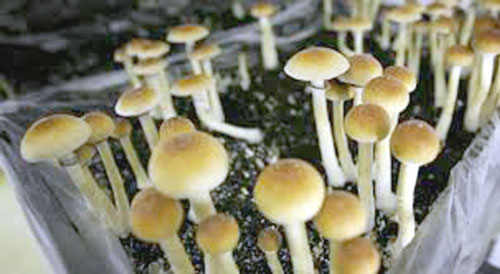IN a small clinical trial, patients with major depressive disorder (MDD) who were given two doses of psilocybin along with psychotherapy showed a reduction in depressive symptoms. The psychedelic’s therapeutic effects persisted for up to 4 weeks with minimal side effects.
Psychedelics are known for their hallucinogenic properties, but their mind-altering effects may also benefit people with depression.
According to the National Institute of Mental Health, about 17.3 million adults in the United States have experienced at least one depressive episode.
Currently, the gold standard for treating MDD is psychotherapy or antidepressant medication. A 2014 study in World Psychiatry found that psychotherapy combined with antidepressants was more effective than the former alone. Replacing antidepressants with hallucinogenic mushrooms
New antidepressants are ketamine-like drugs that show a high therapeutic response. A 2014 meta-analysis in Psychopharmacology reports that roughly 0.5 milligrams per kilogram of ketamine effectively reduced depressive symptoms. These effects also lasted 2–3 days after treatment. However, there are some drawbacks.
While currently approved by the Food and Drug Administration (FDA), there are some short-term side effects to consider when using ketamine, such as feeling strange or bizarre, numbness, and difficulties speaking.
Ketamine has a high liability for addiction and may have a large potential for abuse. A 2018 study in Neurobiology of Stress found that repeated low-dose ketamine treatments for treatment-resistant depression resulted in cognitive impairments and potential for abuse.
To avoid people abusing their medication, alternative treatments to support psychotherapy are needed — enter psilocybin.
There is growing evidence of psilocybin’s antidepressant properties. A study in the Journal of Psychopharmacology demonstrateda single psilocybin dose that produced an antidepressant and anxiolytic response in cancer patients, which lasted for 5 years.
Compared with ketamine, psilocybin has lower addictive properties, which would be beneficial as a potential add-on for current treatments. However, clinical research evaluating this substance in combination therapies is limited.
Recently, researchers at Johns Hopkins University published an article contributing to the research investigating the effectiveness of psilocybin-assisted therapy for depression.









